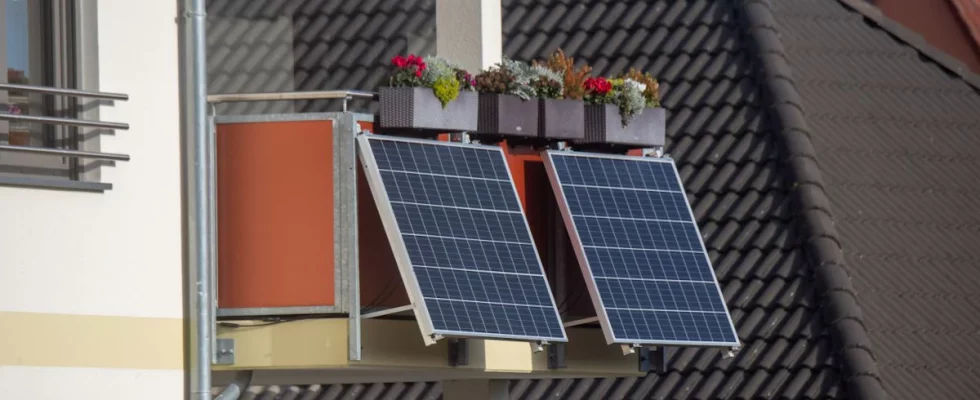In the future, solar energy can be used more easily in Germany. The corresponding package of measures from the traffic light factions FDP, SPD and the Greens was approved by the Bundestag. The traffic light coalition had already agreed on the package a long time ago. However, it was only possible to vote now because it was linked to the controversial reform of the Climate Protection Act. This is also due to be decided by the Bundestag today.
Solar energy is an important pillar of the energy transition – the gradual departure from fossil energies such as coal and gas. The federal government’s goal is: by 2030, 80 percent of electricity should come from renewable energies. Solar output was already significantly expanded last year. In order to further accelerate this expansion, the legislative package stipulates that private balcony solar systems no longer have to be registered and can be more efficient. In general, solar systems on the roof should become significantly more attractive with improved funding conditions, increased funding rates and uncomplicated billing options for self-used electricity.
In addition, solar systems on commercial buildings such as supermarkets or factories as well as on company parking lots should be promoted and systems on arable land should be promoted. There is also one point regarding the expansion of wind energy: an EU emergency regulation should be extended. It provides for accelerated approval procedures for wind power. The solar package will also be voted on in the Federal Council this Friday in order to meet EU deadlines.
With the reform of the Climate Protection Act, which was also discussed in the Bundestag today, failure to meet climate targets will be assessed differently in the future. So far, if individual sectors such as transport or buildings fail to meet legal requirements for carbon dioxide emissions, the responsible ministries must submit emergency programs the following year. With the reform, compliance with the climate targets should no longer be checked retroactively by sector, but rather with a view to the future, over a period of several years and across sectors. Environmental associations criticize the reform as a weakening of climate protection with far-reaching consequences.

